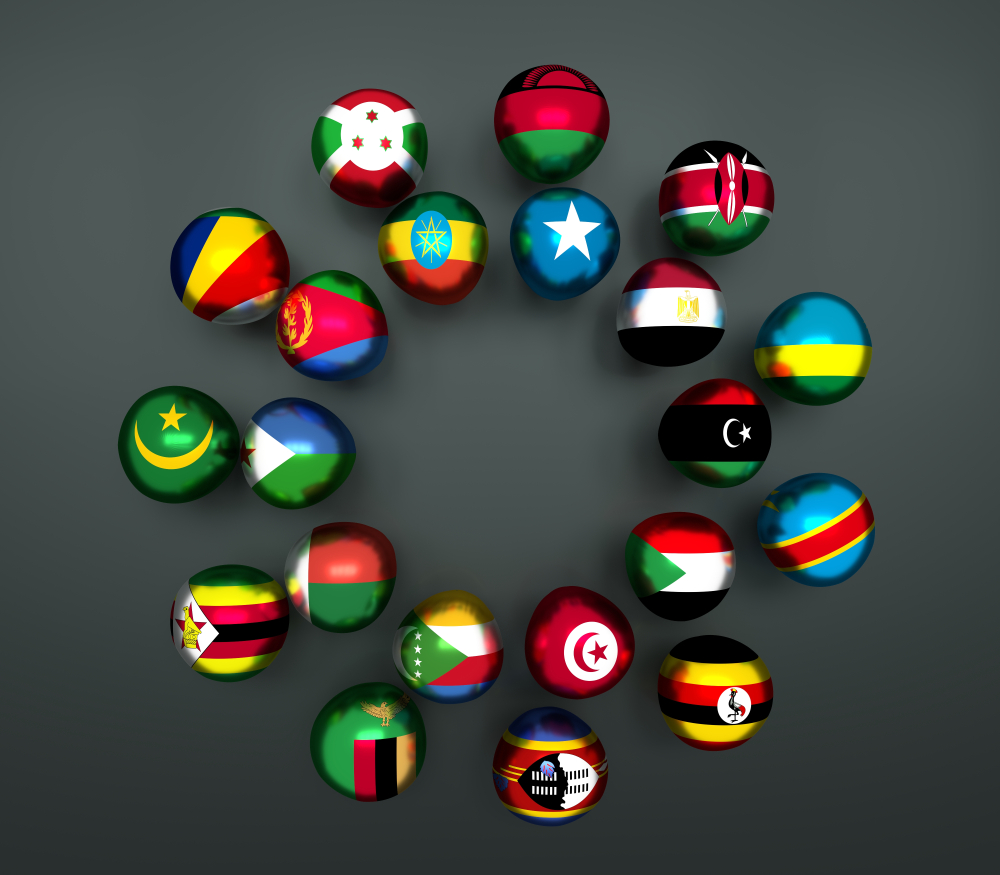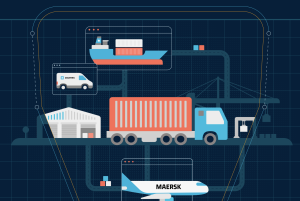 Infrastructure is the key to unlocking the African continent’s free trade potential, says Dr Obiora Madu, Director-General of the African Centre for Supply Chain and CEO of the Multimix Group. Here he tells Smart Procurement the ways to go about “fixing the missing links”.
Infrastructure is the key to unlocking the African continent’s free trade potential, says Dr Obiora Madu, Director-General of the African Centre for Supply Chain and CEO of the Multimix Group. Here he tells Smart Procurement the ways to go about “fixing the missing links”.
Africa comprises about 20% of the world’s population but even with most of the natural resources being found in Africa, her contribution to global trade is less than 5% according to the World Bank. The other challenge is the level of intra Africa trade which is put at about 12% compared to intracontinental trade in Asia and Europe. After a serious brainstorming session in 2005 in a supply chain conference in South Africa, organised by the International Trade Centre Geneva, it was concluded that the aforementioned scenario was as a result of poor supply chain infrastructure and practices.
Looking at just one practical example, the Kenyan Export Promotion Council visited Nigeria on a trade mission and discovered they could supply tea and coffee at competitive prices. A study was commissioned of which I was part, and the results looked good, but for the fact that by the time they shipped the coffee through Europe and it arrived in Nigeria, the competitive advantages would have been wiped out completely. And the reason is simple – there are no continental highways and no coastal shipping lines within the continent. The logistics to carry out intra-African trade is more or less absent.
According to a publication by MPDI entitled Sustainability in February 2022, “Improvements in logistics performance are considered to be a significant driver of economic growth, and this is traceable to the poor performance of African countries in the World Bank’s Logistics Performance Index. The impact of the pandemic on global supply chains which further exposed the weaknesses in Africa’s supply chain, points to the need to look at ways to fix the broken links.”
AfCFTA & Supply Chain Infrastructure
Infrastructure is defined as part of a structure; the material or economic base of a society or an organisation. Therefore, infrastructure can be seen as the basic structure that fosters the good performance of essential services in cities, states or countries. This includes efficient functioning of the transport, education, healthcare, sanitary, security, communication and energy systems, as well as others that support a country’s economic development.
According to the World Bank’s analysis, the AfCFTA (African Continental Free Trade Agreement) will boost intracontinental exports by over 81% and exports with non-African countries by 19% by 2035. In terms of sectors, manufacturing exports are anticipated to make the most gains: a 110% increase for intra-African trade and 46% for non-African trade. In contrast, service trade is envisaged to have the most modest rise (14% of intra-African trade).
The question will be, are all these achievable with the current state of Infrastructure to drive the African Continental Free Trade Area? Some of the infrastructures that will bring success to AfCFTA include transportation, storage, technology, power and logistics education.
- Transportation Infrastructure: involves the availability of adequate transportation facilities which remains the biggest facilitator of the success of the AfCFTA.
- Other Logistics Infrastructure: apart from transportation, storage facilities are another critical infrastructure needed for the success of the AfCFTA. This will mean licenced warehouses of international standard across Africa.
- Power Infrastructure: Lack of power has been the bane of many African countries; therefore, the availability of electricity supply will play a crucial role in the success of the AfCFTA. Because many businesses rely on the supply of electricity for their functioning, there is a need for a stable electricity supply for them to increase productivity and be able to effectively participate and compete in the AfCFTA.
- Technology Infrastructure: Conducting trade across the globe without technology is a luxury that no nation wants to try. Therefore, both E-Commerce and the digital economy are part of intra-African trade facilitated by the AfCFTA, and technology infrastructure and facilities are necessary to power both.
- Logistics education: Globally, the dearth of supply chain professionals is nearing crisis point. In most African countries, the quality of education is generally poor. On the other hand, the availability of supply chain courses and certifications are either unavailable or unaffordable. A broad base of business skills, knowledge of the logistics process, and relevant work experience will improve the quality of logistics and supply chain services, and by implication, improve the positioning of African countries on the Logistics Performance Index.
In conclusion, investing in a country’s physical infrastructure can contribute to economic growth, improve human welfare and has considerable potential for directly reducing poverty, and yet current investments in most African countries, whether internally or externally sourced, are insufficient to fund infrastructure needs, leaving logistics at unacceptable levels.
Although the public sector will remain the major provider of infrastructure services in most African countries for the foreseeable future, considering ways of attracting increased private sector investment should not be left out.
By Dr Obiora Madu, CEO of the Business Process Outsourcing Academy of Nigeria. He can be reached at drmadu@multimix.com.ng



























